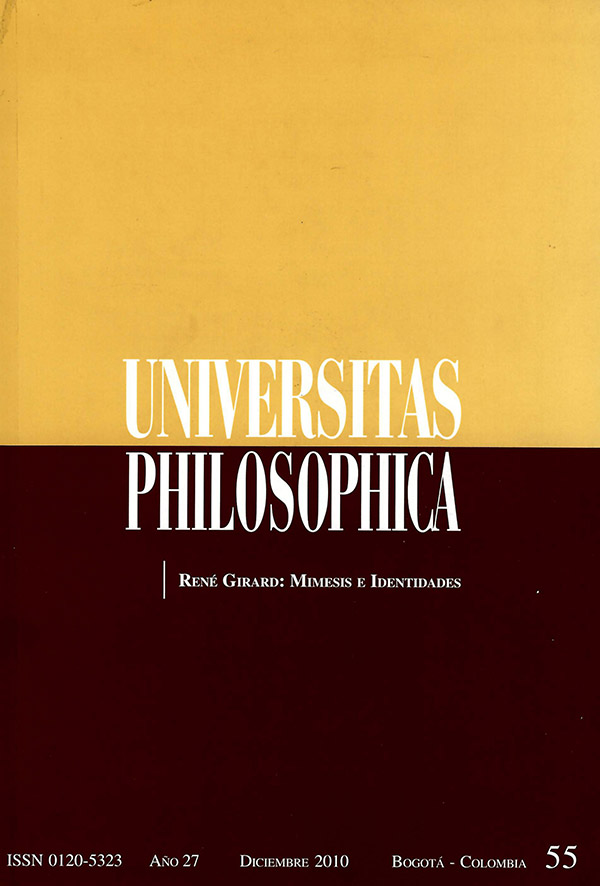Abstract
This article introduces to Girard's contribution to a rereading of sacrificial biblical texts, and to epistemology and biblical exegesis. It discusses the subject of the sacrifices in the most relevant texts of the Bible, both the New and the Old Testament, and how these have been interpreted in the mainstream Christian tradition, concluding with the theme of Jesus' sacrifice and the traditional way of interpretation as a self-sacrificing and expiatory victim of human sin. It provides a look from the perspective of the “scapegoat”, its role in religion and culture, as well as the development of “sacrificial crisis”, according to Girard. Also, it develops the implications of this re-reading for our theology and our commitment to the victims of Colombian armed, social and political conflict. Finally, this article settles some questions from Girard's contribution and a re-reading of biblical texts: What do we say to a victimized nation by new forms of ‘scapegoats’? How to find a different path from our Christian tradition, to overcome this condition?
This journal is registered under a Creative Commons Attribution 4.0 International Public License. Thus, this work may be reproduced, distributed, and publicly shared in digital format, as long as the names of the authors and Pontificia Universidad Javeriana are acknowledged. Others are allowed to quote, adapt, transform, auto-archive, republish, and create based on this material, for any purpose (even commercial ones), provided the authorship is duly acknowledged, a link to the original work is provided, and it is specified if changes have been made. Pontificia Universidad Javeriana does not hold the rights of published works and the authors are solely responsible for the contents of their works; they keep the moral, intellectual, privacy, and publicity rights.
Approving the intervention of the work (review, copy-editing, translation, layout) and the following outreach, are granted through an use license and not through an assignment of rights. This means the journal and Pontificia Universidad Javeriana cannot be held responsible for any ethical malpractice by the authors. As a consequence of the protection granted by the use license, the journal is not required to publish recantations or modify information already published, unless the errata stems from the editorial management process. Publishing contents in this journal does not generate royalties for contributors.


